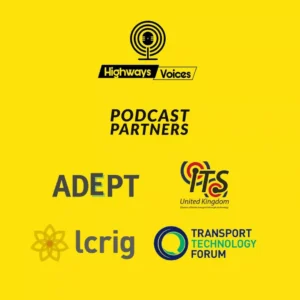The TV presenter and motoring journalist Richard Hammond is predicting growing numbers of people will identify as car enthusiasts and fight to protect their right to drive as authorities place greater restrictions on driving.
The Grand Tour host spoke with the Highways Voices podcast before the Rees Jeffreys Road Fund motoring debate on the role for the car in society, which was hosted at the Royal Automobile Club in London.
“I think in terms of car enthusiasts, the numbers are going to increase wildly,” he told Highways News co-owner Paul Hutton. “And here’s why – when we are offered [a picture of an] autonomous anonymous plastic box that arrives at your front door, A lot of people faced with that option, or where applicable, the option of cycling, using a train, a lot of people will suddenly look at their humble, Polo or Corsa… and think I still really like it. I like what it what it allows me to do. I like using that machine. And they’ll suddenly realise that for the first time, they identify as a car enthusiast. And I think those of us who have been gathered round in the centre as though under attack, I can look over our shoulders and realise, wait a minute, nearly everybody’s joining us. I think actually this is a polarise out and there will be more car enthusiasts, the car is not going anywhere.”
When challenged about the environmental impact of cars, Mr Hammond agreed that they must become cleaner and insisted that would happen, but that thinking Electric Vehicles are the only answer is wrong.
“Even if you could generate electricity renewably, how you’re going to distribute it? What would the carbon footprint be of turning every single petrol station into a charging station? Of getting nitrogen-cooled cables about a foot and a half dig into every street in every major city to deliver the electricity. The carbon footprint of that will be vast plus mining nickel, cadmium around the world. So they will be part of the picture. So will hydrogen combustion. Also synthetic fuel: Once it’s generated renewably using carbon dioxide extracted from the air half of which is sequestered away as rot or even turned into road surfaces, which can now be done, then it would actually have a negative impact with reduced carbon dioxide. So that means 1.4 billion cars currently on the road can stay on the road.”
On the environmental theme, he continued by saying that while the car is responsible for carbon emissions, it is not the only villain in our lifestyle. “Fast fashion, food production, all of those things have a bigger effect… tourists. They’ve all got to be resolved. The car is just the easiest one to demonise.
“People… buy a new football strip every six months because of the team they support, or a new pair of trainers made on the other side of the world by somebody else’s children out of fossil fuels-derived oil-derived materials and then shipped around the world where you’ll use them for six months before putting them in landfill where they’ll sit for 100 years. That’s worse.”
The debate also featured National Commissioner for Active Travel England Chris Boardman MBE, Laura Shoaf CBE, the CEO of the West Midlands Combined Authority, and Fiona Spowers, Director at hydrogen-fuelled vehicle company Riversimple Movement.
You’ll be able to hear the whole interview with Richard Hammond, plus the thoughts of Chris Boardman and some Rees Jeffreys Road Fund Bursary recipients on a forthcoming Highways Voices podcast.
(Picture – Richard Hammond with Paul Hutton)
























